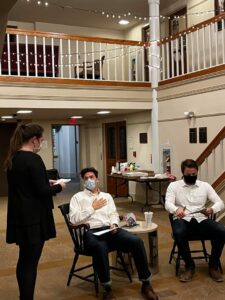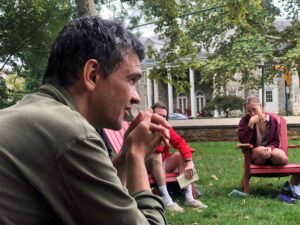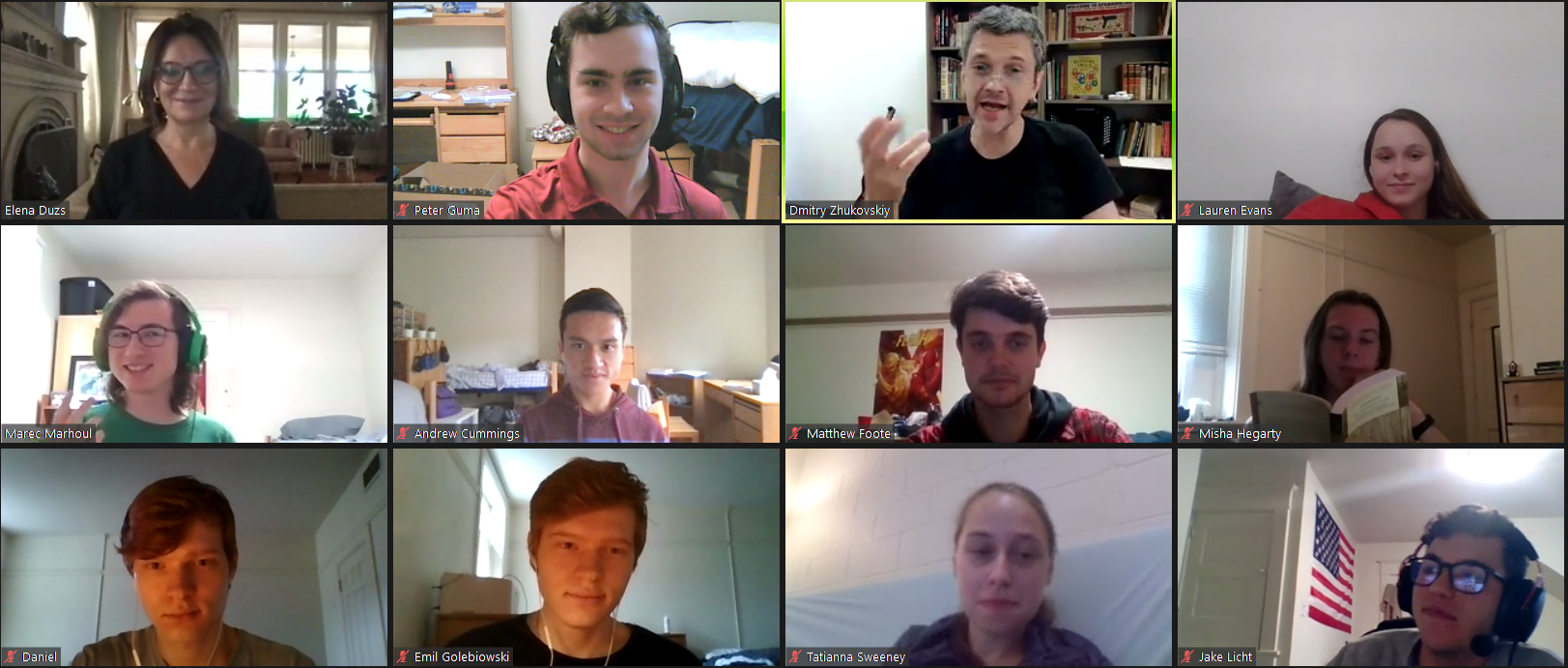by Peter Guma, ‘24
On Monday, seniors from the 333 Advanced Seminar course staged a play, “The Bear,” written by the renowned Russian playwright Anton Pavlovich Chekhov. The audience filled the main atrium of Bosler Hall, engrossed with the performance. The spectacle consisted of two groups of seniors acting out the same material with their own unique interpretations of the play and methods of acting. Lines alternated between English and Russian so that everyone present could understand the plot, regardless of language proficiency. The seniors’ performance was the culmination of a semester of reading, analyzing, and discussing challenging and authentic Russian texts. Attendees were then invited to join the actors for pizza and refreshments.
However, these seniors did not work alone as they prepared for their big debut. In early October, Visiting Theater Director Dmitry Zhukovsky of Washington & Lee graciously met with students in both the 333 Advanced Seminar and 260 Russian Theater courses to discuss Chekhov’s plays, respectively “The Bear” and “The Cherry Orchard.” He facilitated multiple discussions over Zoom for each class to help students form their perspectives about their text, later arriving on campus for a final in-person meeting to conclude his series of workshops. In particular, Director Zhukovsky encouraged students to pay close attention to the relationships between characters and concepts while considering how to go about staging their play. This approach “forced us to realize the deeper story being told throughout the comedy,” observed Matthew Foote of Russian 260. Regarding “The Cherry Orchard,” Tatianna Sweeney noted that she “started to view the characters as complex individuals that [she] can only hope to uncover pieces about and learn from, whether it be from their mistakes or successes.” Although only the senior class put on a full performance, students in either class obtained a high level of comprehension and confidence that they could use for directing or acting in any future play.
Students found that these discussions aided their understanding of character relationships and the role of the stage director. Andrew Cummings wrote that he and his classmates in Russian 260 “were able to better understand each character’s motives and actions and see why they behaved or performed an action in a certain way.” In the same class, Peter Guma remarked that Director Zhukovsky “encouraged a variety of perspectives from the very beginning to stimulate productive discussion.” All the students appreciated the opportunity the workshops gave them to be their own stage directors rather than actors strictly adhering to a director’s interpretation. Across the board, the Russian Department was honored and grateful to have met and worked with Director Zhukovsky and would love to welcome him back in the future.


